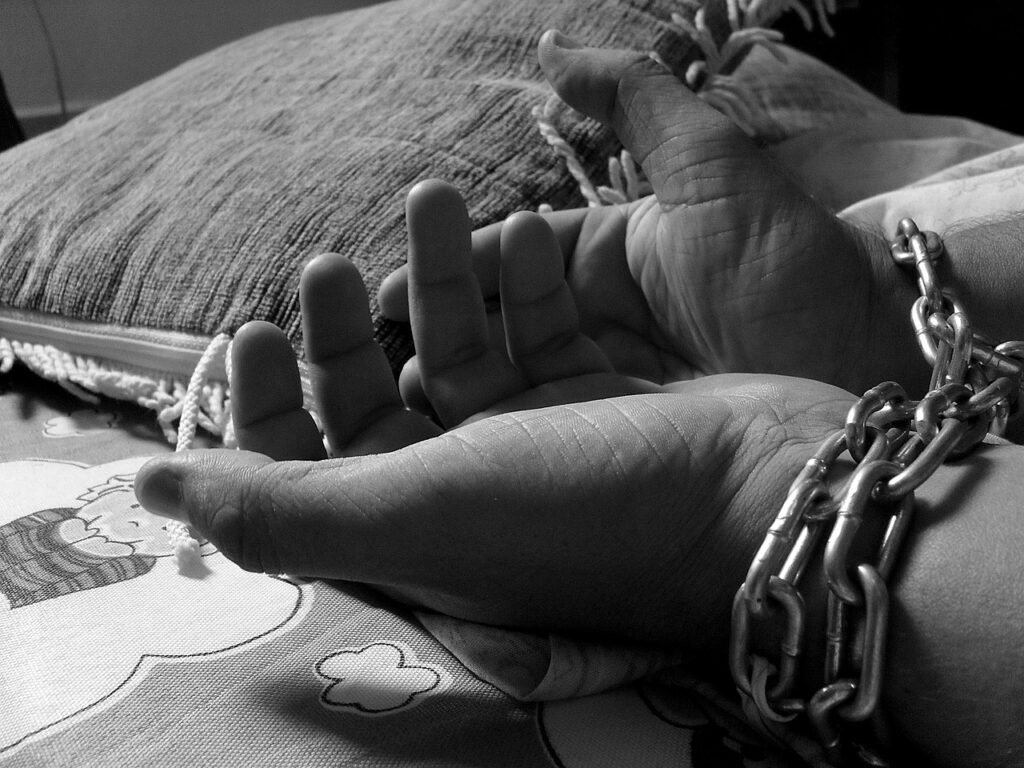Human trafficking has severe effects on one’s physical and mental health. Victims endure many violations, including physical, psychological and sexual abuse, which leaves them susceptible to mental health conditions.
Studies show that human trafficking victims may develop signs of memory loss, depression, emotional numbness, and post-traumatic stress disorder. The effects last for extended periods, affecting a victim’s interpersonal relationships and leading to intergenerational cycles of victimization.
Understanding the impact of this crime is necessary ahead of human trafficking awareness day.
What is Human Trafficking?
According to the United Nations, human trafficking is the recruitment, transfer or transportation of people through fraud or force to exploit them for profit. Human trafficking can be broken down into three elements:
- The objective- exploitation and profit
- Human trafficking method- force, deception, coercion, abuse of power
- Human trafficking act, i.e. through recruitment, harboring, transferring, transportation
The practice is so popular in modern-day living as more than 27 million people are trafficked globally at any given time. While human trafficking affects both genders, most victims trafficked for commercial sex and labor are women and girls.
The United Nations Office on Drug and Crime found that for every 10 human trafficking victims, five are adult women and two are girls.
How Human Trafficking Affects Mental Health
Human trafficking disrupts families and leads to loss of fundamental human rights, causing severe mental health problems. Most victims develop one or more of the following mental health disorders:
Post-traumatic stress disorder
Human trafficking victims who have been abused sexually and physically are more likely to develop PTSD, especially when they have experienced many abusive episodes. The feelings of alienation, hopelessness, humiliation, and loss of control lead to severe PTSD.
Victims who have been exposed to extended periods of trafficking need more prolonged periods of post-trafficking care from PTSD.
Depression
Human trafficking victims are also likely to develop severe depression. Studies show comorbidity between PTSD, anxiety, and depression among human traffic victims, particularly in women and girls. PTSD is often diagnosed along with clinical depression, in which case the individual develops distress and despair.
Anxiety
Human trafficking victims face many stressors and decisions after surviving the ordeal. They may need to appear in court for criminal proceedings and immigration procedures and deal with the stigma associated with sex work.
The fear of man bringeth a snare: but whoso putteth his trust in the LORD shall be safe (Proverbs 29:25).
All such activities can lead to anxiety as they are compelled to relive the experiences while narrating them. What’s more, they’ve had to deal with similar stressors (unemployment and poverty) that caused them to engage in human trafficking, influencing anxiety symptoms.
Contribution of National Human Trafficking Awareness Day
Scheduled for 11th January 2024, the National Human Trafficking Awareness Day raises awareness about human trafficking and modern slavery. It sensitizes governments, societies, and organizations about crime by actively opposing individuals, nations, and groups supporting or advancing acts of human trafficking.
On the same day the National Human Trafficking Awareness Day was designated, the U.S. passed an anti-trafficking law called the Trafficking Victims Protection Act, which established an office to monitor and combat human trafficking.
Since then, every U.S. President has dedicated the month of January to raising awareness about various types of human trafficking and how to identify and address the crime.
The Act also requires the State Department to submit a report showing the extent to which governments with trafficking victims meet the minimum standards for eliminating human trafficking.
The Bottom Line
Human trafficking survivors have to deal with many challenges, among them mental health disorders. Raising awareness about mental health challenges is the first step to knowing how to deal with them and looking for help.








Your article helped me a lot, is there any more related content? Thanks!
Your point of view caught my eye and was very interesting. Thanks. I have a question for you.
Your point of view caught my eye and was very interesting. Thanks. I have a question for you.